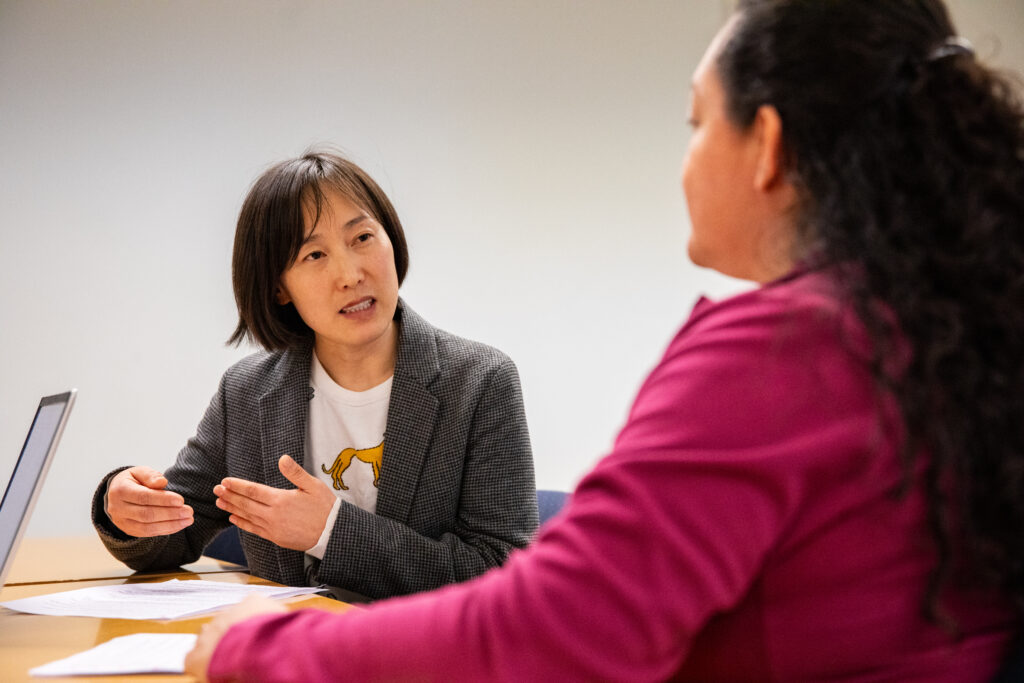Mental Health Stigma in East and South Asian Communities
Asian Heritage Month is a time to celebrate the rich history, culture and contributions of Asian communities. It also offers the opportunity to address important issues affecting these communities such as the collective cultural stigma surrounding mental health. In East and South Asian communities, mental health stigma remans a significant barrier to seeking help and receiving support.

Understanding Mental Health Stigma
Mental health stigma involves negative attitudes and beliefs about mental health issues and leads to social exclusion and discrimination. There are 3 types of stigma: public stigma – society’s negative reactions; self-stigma – internalized shame; and structural stigma – institutional policies and practices.
Cultural Factors Contributing to Stigma
Below are 4 factors that contribute to mental health stigma in the East and South Asian communities:
- Collectivist vs. individualist perspectives: in many collectivist cultures, which emphasize the needs and goals of the group over the individual, there may be a reluctance to discuss personal mental health issues in fear of bringing shame or dishonor to the family or community. This can lead to a tendency to keep problems private and not seek help.
- Myths and misconceptions: misunderstandings about mental health, such as viewing it as a weakness or moral failing, further perpetuates the stigma.
- Gender roles: in many cultures, gender roles can influence the perception of mental health. For example: men may be particularly reluctant to seek help for mental health issues due to societal expectations to appear strong and unemotional.
- Family honor and shame: maintaining family honor is crucial. Mental health issues might be viewed as a source of shame, leading to denial or concealment of issues.
Impact of Stigma
Stigma is more prevalent in Asian societies than it may seem and it has profound effects on individuals of Asian descent.
- Psychological and emotional impact: feelings of shame, guilt, and worthlessness can exacerbate mental health conditions.
- Social impact: individuals may face isolation, discrimination or strained relationships.
- Underreporting and underdiagnosis: fear of stigma often leads to reluctance in seeking help, resulting in untreated mental health issues. For example, a study by Khanlou et al. (2018) in Canada found that South Asian youth were significantly less likely to access mental health services due to stigma, cultural expectations, and lack of culturally sensitive resources.
Komalpreet’s Story
“I came to Canada a year ago, and I’m all alone here without my parents. Life was totally different back in India. Things are changing, no doubt, but there are still so many things we cannot discuss with our parents. It’s always been part of our upbringing to overthink and avoid discussing personal issues with anyone because we’re afraid of being judged.
Since arriving in Canada, I’ve struggled with feelings of loneliness and anxiety. Back in India, discussing mental health openly was taboo, and this mindset has followed me here. When I tried to talk to my parents about how I was feeling, they were supportive but didn’t really understand. They told me to stay strong and focus on my studies but didn’t recognize that I needed more than just words of encouragement.
In our community, admitting to mental health struggles often feels like admitting to a personal failure. The fear of bringing shame or dishonor to the family keeps many of us silent. This stigma makes it incredibly difficult to seek help or even talk openly about what we’re going through. The fear of being judged or misunderstood often forces us to suffer in silence, making the experience of dealing with mental health issues even more isolating.
Being in Canada has opened my eyes to different perspectives on mental health, and I’m slowly learning that it’s okay to seek help and talk about my struggles. But breaking away from deeply ingrained cultural stigmas is a challenge that many of us in the Asian community continue to face.” – Komalpreet K. RRCP Student
Efforts to Combat Stigma
Community Initiatives: organizations like the Asian American Psychological Association and the South Asian Mental Health Initiative and Network provide resources and support to people from Asian communities.
Education and Awareness Campaigns: programs aimed at educating communities about mental health can dispel myths and encourage open conversations.
Culturally Sensitive Services: providing mental health services that respect cultural values and beliefs can make it easier for individuals to seek help given they don’t feel the need to explain cultural context.
Resources
By understanding the cultural factors at play and actively working to combat stigma in East and South Asian communities, we can create a more supportive environment at Red River College Polytechnic. Join the conversation, educate yourself and others, and support initiatives that aim to reduce the stigma.
Find some helpful resources below:
- Canadian Mental Health Association Manitoba and Winnipeg
- Mental Health Education Resource Centre (MHERC)
- Shared Health Manitoba – Mental Health Resource Finder
- Asian American Psychological Association
- South Asian Mental Health Initiative & Network
- Asian Mental Health Collective
- Aurora Family Therapy – Newcomer programs
